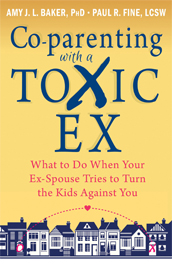Child Custody Disputes In The UK: Top 5 Key Questions Answered | Guide For Parents & Grandparents

- This blog contains affiliate links, which we may receive a commission for purchases. The decision is yours, whether or not you decide to buy.
Divorce and separation can be difficult and emotional times for families, particularly when children are involved. While parents may have different ideas about what is best for their children, it's important to remember that the welfare of the child is the court's primary concern in custody disputes.
By understanding the factors that the court considers when making custody decisions, parents can work towards creating a positive outcome for everyone involved.
In this blog, we'll answer some of the most common questions about child custody disputes in the UK, including how the court decides who gets custody of the children, whether grandparents can obtain custody, and how custody arrangements can be modified.
We'll also look at the role of mediation in resolving custody disputes, and provide useful UK website references for further information. Please note that the information provided in this blog is for informational purposes only and should not be construed as legal advice.
Each custody dispute is unique, and the outcome will depend on a variety of factors specific to each case. If you are involved in a custody dispute, it is important to seek the advice of a qualified legal professional who can provide guidance tailored to your specific situation.
Top 5 key questions about child custody disputes in the UK:
1. How does the court decide who gets custody of the children?
When parents cannot agree on custody arrangements for their children, the court will make a decision based on what is in the child's best interests.
The court will consider a range of factors, including the child's welfare and needs, the parents' ability to meet those needs, and any harm that the child may suffer or be at risk of suffering.
The court may also consider the child's wishes and feelings, as well as any evidence of abuse or neglect. Ultimately, the court will make a decision based on what it believes is best for the child.
2. Can grandparents get custody of their grandchildren?
In some cases, grandparents may be able to obtain custody of their grandchildren if it is in the child's best interests. This may occur if the child's parents are unable to care for the child due to illness, addiction, or other circumstances. However, grandparents must usually go through the court system to obtain custody, and they may face significant legal hurdles.
3. Can a parent lose custody of their child?
Yes, a parent may lose custody of their child if they are found to be unfit or unable to meet the child's needs. This may occur if the parent has a history of abuse, neglect, or substance addiction.
However, the court will generally only remove custody from a parent as a last resort, and only if it is in the best interests of the child.
4. Can custody arrangements be changed?
Yes, custody arrangements can be changed if there has been a significant change in circumstances. This may occur if one parent is no longer able to care for the child, or if the child's needs have changed.
However, the court will generally only modify custody arrangements if it is in the best interests of the child.
5. What is the role of mediation in custody disputes?
Mediation can be a useful tool in resolving custody disputes without the need for a court order. Mediation involves a neutral third party who helps parents come to an agreement on custody arrangements.
Mediation can be less stressful and less expensive than going to court, and can allow parents to maintain a more amicable relationship. However, mediation is not appropriate in all cases, particularly those involving domestic violence or abuse.
Remember: Custody disputes can be difficult and emotional for everyone involved, particularly the children. When parents cannot agree on custody arrangements, the court will make a decision based on what is in the child's.
Please note that the information provided in this blog is for informational purposes only and should not be construed as legal advice. Each custody dispute is unique, and the outcome will depend on a variety of factors specific to each case. If you are involved in a custody dispute, it is important to seek the advice of a qualified legal professional who can provide guidance tailored to your specific situation.
PHOTO: MIKHAIL NILOV
You may also like
Books
Buy now from Amazon
Podcast
If you’re looking for some straight-up, positive advice on topics that affect your daily life, then check out The Sue Atkins Parenting Show. Each week Sue bare will discuss every possible aspect of your parenting challenges, from weaning to whining, boundaries round technology to stroppy teens. You’ll get practical tips, techniques and advice that really work- and it’s all totally free.
Articles
- 5 Ways To Parent With A Narcissist
- How To Be Great Parents Through Separation And Beyond
- Divorce From A Child's Perspective
Videos
Practical advice and tips from professionals on what to do with issues and challenges around divorce from parenting to finance.
Events
Practical tips & advice designed to help people going through divorce, whether online or in person.
Useful links
Here's a selection of organistaioins from parenting to finance to help you with your divorce.
Legal professionals
Related Posts
-

The Real Cost of Divorce: Hidden Expenses and Smart Savings
-

Support For Men Going Through Divorce: Finding Community, Guidance, And Strength
-

Is Your Phone Ruining Your Marriage? The Real Link Between Social Media And Divorce
-

5 Essential Tips For A Joyful, Stress-Free Christmas As A Divorced Or Divorcing Parent
-

How to Rebuild & Heal Your Life After Divorce

.jpg)

.jpg)



.jpg)

